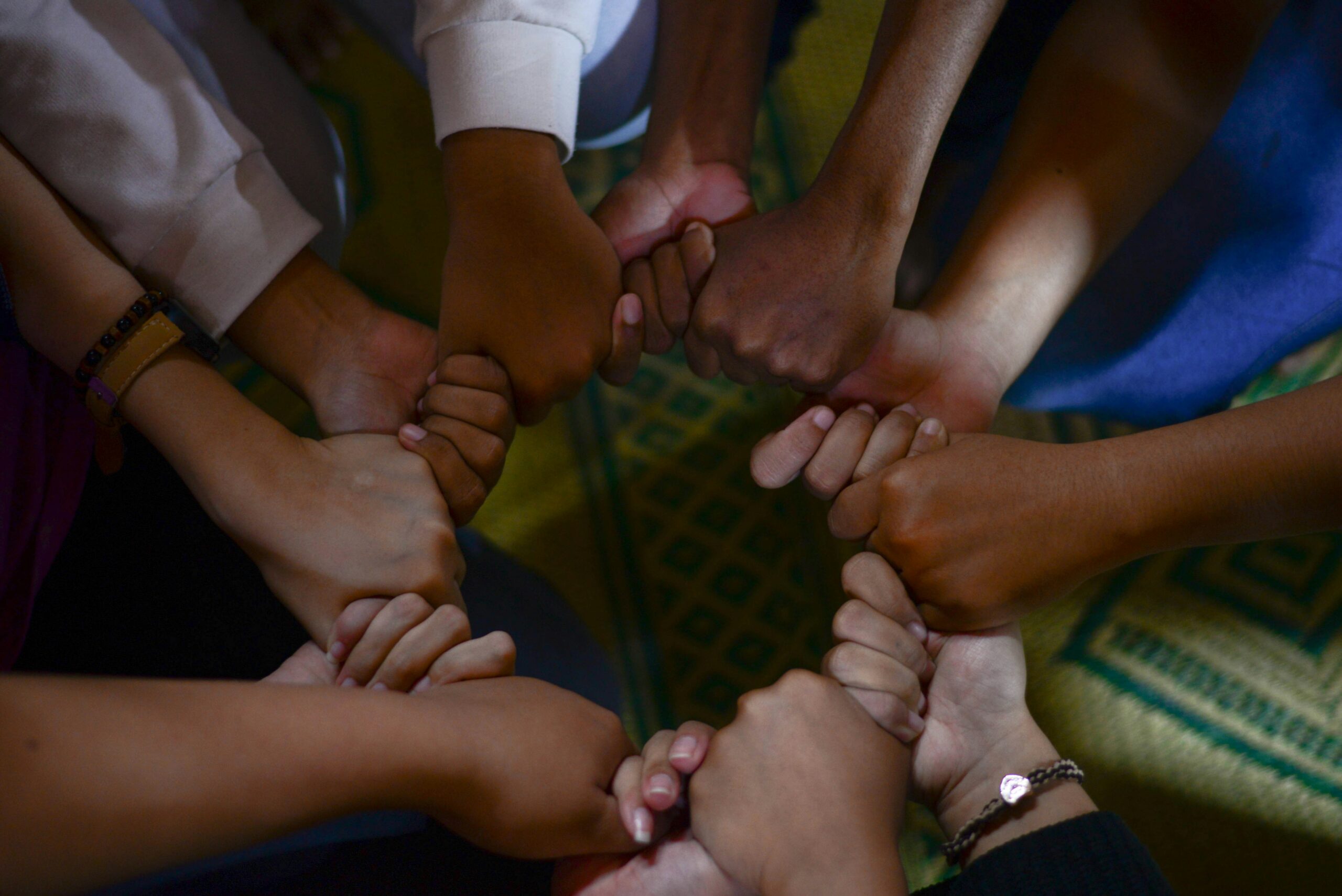
Cult dynamics are everywhere. In my opinion, anyway — when you apply the term loosely. We usually think of the more catastrophic versions, such as the People Temple and Heaven’s Gate, both of which ended in mass suicide. These are tragic examples of ideologies in a group setting that led to paying the ultimate price (that the cult members for the most part consciously chose). But the same dynamics that characterize these sorts of cults play out at a smaller scale in many movements and mindsets in our current world, where herd mentality, groupthink, and division are rife.
Understanding the reasons why people join cults can be complex, but there are usually some themes. And they are more common than you might realize. For example, consider how cultish people, groups, or mindsets may have affected you. A valuable question to ask yourself is: what might I be believing or buying into due to a leader or figurehead, or because of people in my life or people I identify with or admire? The alternative is an authentic opinion or viewpoint, based on personal experience, research, and/or education.
Let’s go over what exactly cults are so you can start to grasp the psychology behind them.
A cult is an organized or social group that exerts high pressure or control on its members. The beliefs or practices associated with the cult are often unusual, extreme, or outside of traditional systems. Additionally, most cults are characterized by a charismatic leader of some kind. Cult members may idolize the leader, even to a deity level of power and influence. Other times the idolization or reverence is more about the belief systems or ideologies.
Some cult leaders purposely and knowingly deceive people in order to get or maintain power, control, money, or attention. Others fully believe what they are selling. For more detail on the psychology of cult leaders, read this blog next.
Cultish situations can affect literally anyone. It’s a myth that more educated people are less vulnerable, for example. In fact, it is often the opposite. If you think you’re too smart to be influenced, you aren’t aware of how psychological operations and related tactics work. But overall, there are a few hallmark factors that make someone more likely to join a cult.
Trauma changes the brain and can be damaging in all sorts of emotional, psychological, and spiritual ways. Very unfairly, this means that trauma survivors may be more vulnerable to manipulation (a hallmark of cults). They are probably seeking healing, comfort, or guidance, and if they have not gotten that in healthy ways or with healthy people (sometimes even if they have), cultish groups or leaders have an upper hand. They may be told: this group or these belief systems will fix everything for you.
Sometimes past trauma or difficulties birth false beliefs in us, for instance about not being good enough. These add to vulnerability and the tendency to source worth outside of self.
Sad to say, sometimes abusers or cult leaders have a way of sniffing out sensitive people and those who have suffered a lot. Their high levels of empathy, compassion, or desire to make others happy puts them in danger. They may also have damaged self-worth and negative expectations or trust issues. They are more likely to buy what is being sold or believe lies and ideologies fed to them. Cult leaders tend to be very charismatic and appealing in an outer way, which adds to the allure.

We can’t know all the possible reasons why people join cults. However, psychologically speaking there are some possibilities.
People who join or consider joining high control groups are usually seeking belonging. Maybe they have not found it elsewhere – or they have, but it was taken away or unhealthy. In fact, past unhealthy patterns make people more susceptible to cults because the vibe is more “familiar” (this is often unconscious). People with healthier backgrounds or stable self-esteem may notice more quickly that something feels off or false. Wounded people may believe that this is their only option for community, especially if the leader says they will be together forever, have some sort of mission, or their souls will be saved through the cult (such as in a religious group).
Another explanation is that they are seeking a sense of certainty in a chaotic world, or validation for their already existing beliefs and tendencies. When a leader or group gives you a framework for reality, or an explanation for why your life is the way it is, that is compelling.
Additionally, people who tend toward codependency may be more likely to join cults. They are often seeking validation naturally. Being codependent means deferring to others’ needs or wants over your own, people pleasing, or caretaking in unhealthy ways.
Even strong, unwounded people can fall prey to cult tactics. So try not to beat yourself or others up too much for being influenced. The term cult is often used in a pejorative way, but the truth is that every single human has a brain with neural pathways and fears that can be exploited by unhealthy people and groups. Even the daily news plastered across your TV or phone (and the information echo chambers within) is exerting cumulative influence on your perception of reality.
If you feel coerced or like leaving a group or mindset would be perceived as a problem to the leader or members, that’s a big red flag. Get support from a trusted person or mental health professional, and take a step back. Then you’ll be more equipped to evaluate if this group is healthy for you over the longer term.
© Copyright Centered One by Erin, LLC. All rights reserved.
Photos by: